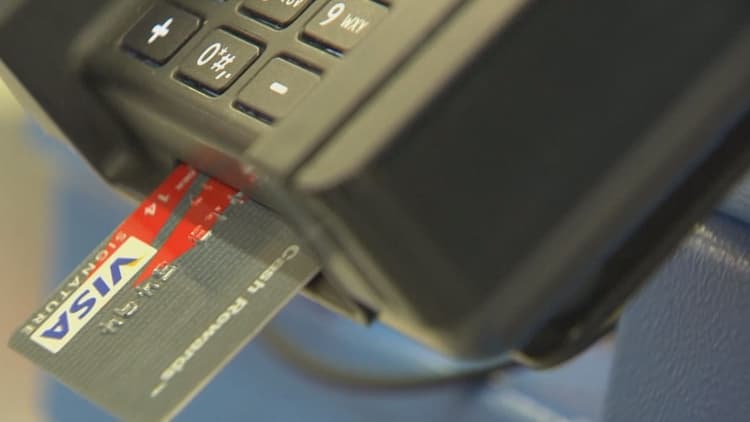As this spring's college graduates leave campus life behind, they'll discover there's a downside to bidding farewell to classes and exams.
They also can expect to lose discounts, freebies and special rates on various services and accounts that helped them get by in their years as a struggling college student.
"The importance of checking these accounts and planning accordingly is high, as they typically mean additional expenses on a tight budget," said Jacqueline Schadeck, a certified financial planner with Tailored Wealth Management in Atlanta.
An estimated 1.83 million students are completing bachelor's degrees this year. Some of them will pursue advanced education, thereby keeping the perks that come with remaining in school.
For anyone who is leaving college behind them, however, now's a really good time to evaluate how loss of your student status will affect your accounts.
Student loans
First up is the fact that finishing school means repaying student loans. And for anyone who graduates owing, those monthly payments will start before you know it.
Collectively, student loan debt has reached more than $1.4 trillion, according to the Federal Reserve Bank of New York. Borrowers graduate with an average debt of $39,400, separate data from Student Loan Hero shows.
With federal student loans, you get six months after graduating before your first payment is due (some private loans might require that repayment starts while the borrower is still in school).
During this reprieve, it's worth taking inventory of all your loans and evaluating whether it makes sense to refinance or consolidate any of your debt.
Sometimes it does. Be aware, however, that if the move involves a federal loan, you could lose certain protections and choices for paying back the money. For example, one of those options is an income-based program, which can be helpful to those whose starting salaries can't accommodate a big monthly outlay.
"The biggest thing I tell people if they're thinking about consolidating is to get a second opinion," Schadeck said. "You don't want to lose the federal repayment options."
Bank accounts
Some banks waive their monthly account fee or offer other deals for customers who are verified students.
If your bank is kicking you off its student-account roster, make sure you shop around for the best account instead of automatically remaining with the same bank. There are a variety of charges to look at beyond just a monthly account fee (which often is waived if the balance stays above a certain threshold), including ATM and overdraft fees.
Of course, if your bank has no mechanism in place to know whether you are still a student, you could get away with keeping the benefits at least for a while.
"Banks are not necessarily great about keeping up with who's a student and who's not," said Amanda Dixon, an analyst with Bankrate. "I graduated five years ago and still have a student checking account."
Credit cards
No matter your age, carrying a balance on your credit cards is never a good thing due to the interest you pay (an average of more than 16 percent annually). However, some college grads inevitably find themselves with this debt.
While being a student doesn't always mean you're paying a higher interest rate, the credit card company might automatically transfer you to a non-student account.

"If you have a balance and your account will be transferred, ask if you're eligible for any balance-transfer deals," Schadeck said.
Those offers can come with zero percent interest for a certain amount of time, although they typically charge a transfer fee.
Subscription services
If you've enjoyed a reduced rate for, say, music-streaming or movies, you can expect to lose that special price. Depending on the company, your account might convert automatically to a full-price deal.
Make sure you evaluate whether those increases are worth it to you.
More from Personal Finance:
These are the five cities where people hold the most student debt
Before signing up for an airline credit card, weigh the benefits against the cost
New grads: How to get higher pay and not blow it for the future
"Whether you're a student or not, it makes sense to look at your subscriptions every six months to a year to make sure they're still relevant and useful to you," said Roger Ma, a certified financial planner and founder of Lifelaidout in New York.
Ma also said you can consider sharing subscription services with, say, a roommate, as a way to reduce what you pay.
"One could get Spotify and the other gets Netflix and then they share," Ma said.
He also pointed out that while losing your student status means giving up some deals, not all specials will disappear.
"Many organizations offer people in their 20s and 30s discounts on regular prices," Ma said. "You just have to look for them."


